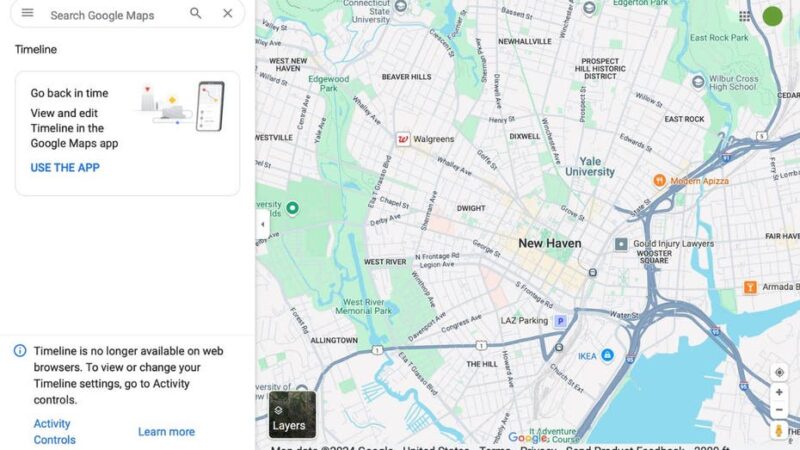Google Maps is Phasing Out Location History: What You Need to Know to Save Your Data

Significant Changes Coming to Google Maps Timeline Feature
Google is implementing a major update to its Maps Timeline feature, which has been used to track users’ location history. As part of this transition, users will soon receive notifications indicating that their Timeline data will be deleted automatically after a specific deadline unless they take action to back it up. This move signifies a shift toward enhanced privacy, as Google intends to store Timeline data locally on devices rather than on its servers. While this change is designed to protect your data from unauthorized access, it also means that any unbacked location history may be permanently lost.
What You Need to Do
Google has begun notifying users via email about the upcoming changes to the Timeline feature. Starting soon, the last three months of Timeline data will be deleted unless you take action to save it. While the switch to local storage provides enhanced privacy for those concerned about sharing their location data with Google, it also means that if you don’t act quickly, your past location history could be lost forever.
Once you receive the notification email, you will have about six months to save or transfer your Timeline data before it is deleted. The email will come from “Google Location History,” with the subject line: “Keep your Timeline? Decide by [date].” It’s important to note that not everyone may receive these notifications at the same time, so there’s no immediate need to panic. However, once you do receive the email, you will have a limited window to make a decision.
Why You Should Consider Saving Your Timeline Data
There are several compelling reasons for users to consider saving their Google Maps Timeline data:
- Personal Memories: The Timeline feature serves as a digital diary, allowing you to revisit past travel experiences and locations, which can be incredibly valuable to many users.
- Travel Planning: Historical location data can assist in future travel planning by helping you analyze previous trips and make informed decisions about where to go next.
- Safety and Security: Maintaining a record of locations visited can be important for personal safety. In case of emergencies, having a detailed history of your movements can provide crucial information.
- Data Ownership: Storing your data locally gives you greater control over your information, ensuring it remains private and accessible without relying on cloud services.
- Avoiding Loss: Google has made it clear that any unbacked location history will be deleted after the transition, emphasizing the importance of taking prompt action.
Steps to Preserve Your Timeline Data
If you have received the notification email or want to ensure your Timeline data is preserved, follow these steps:
- Use Google’s Timeline Export Tool: Google is rolling out a feature that allows you to export your Timeline data directly from your devices. To do so:
- On your phone or tablet, access the export feature through the Google Maps app.
- On your computer, visit Google Maps and navigate to the Timeline section to export your data.
Remember that this backup will be specific to the device you are using, so you may need to repeat the process on other devices as well.
Protecting Your Privacy Beyond Location History
While this update enhances your control over location data, it’s essential to remember that Google collects personal data in various ways. Here are additional steps you can take to safeguard your privacy:
- Disable Location Data: Turn off location data on Google to prevent Google Photos from tracking where your photos were taken.
- Turn Off Facial Recognition: Disabling facial recognition helps prevent Google from collecting your facial data without your consent.
- Delete YouTube History: Google tracks your viewing history on YouTube; consider deleting it if you feel it’s an intrusion on your privacy.
- Use a VPN: A virtual private network can significantly enhance your online privacy while using Google Maps. However, be cautious as it may interfere with the app’s ability to provide accurate directions.
Conclusion: A Move Towards Greater Privacy
Google’s decision to delete location history after three months marks a significant step toward giving users more control over their data while enhancing privacy by storing information locally. As privacy concerns continue to grow, it’s encouraging to see tech companies like Google make strides in transparency and user choice.
If you have any additional privacy concerns regarding Google, feel free to reach out to us. For more tech tips and security alerts, subscribe to our newsletter.
Your privacy matters—take action now to protect your data before it’s too late!

